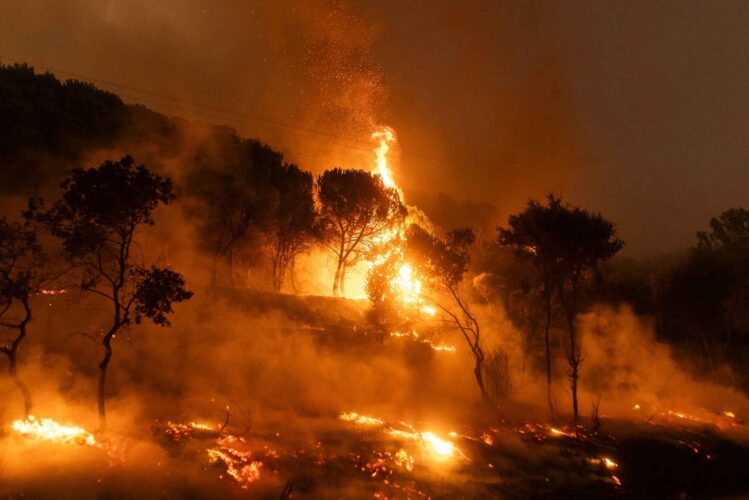A climate scientist named Patrick T. Brown recently admitted he had to edit the findings of his study on California wildfires to fit “pre-approved narratives” that the phenomena are solely caused by climate change. His claim was made in an article published in The Free Press, a pro-free speech media outlet founded by ex-New York Times editor Bari Weiss.
Brown claimed that a paper he co-authored, “Climate warming increases extreme daily wildfire growth risk in California,” curtailed the amount of non-climate change related content it could have included. In other words, even though there were several other factors contributing to the wildfires, the authors only focused on climate factors in order to get it published.
Because scientific journals prefer studies that focus on climate change, Brown argued the media is naturally influenced to focus on climate change to a greater extent than warranted.
“I knew not to try to quantify key aspects other than climate change in my research because it would dilute the story that prestigious journals like Nature and its rival, Science, want to tell,” Brown wrote. “This matters because it is critically important for scientists to be published in high-profile journals; in many ways, they are the gatekeepers for career success in academia. And the editors of these journals have made it abundantly clear, both by what they publish and what they reject, that they want climate papers that support certain preapproved narratives—even when those narratives come at the expense of broader knowledge for society.”
Brown is a co-director of the Climate and Energy Team at the left-of-center environmentalist think tank The Breakthrough Institute. Brown is also an adjunct faculty member at Johns Hopkins University’s Energy Policy and Climate Program. He has a PhD in Earth and Climate Sciences from Duke University and has been involved in research projects at Stanford University, Caltech, NASA Langley, NASA Goddard, and Princeton University. His work has been published in Nature, Proceedings of the National Academy of Sciences (PNAS), and Nature Climate Change among other journals, and has been featured in The Washington Post, BBC Radio, and CNN.
Brown took to social media platform X to clarify the takeaway from his article. “Some outlets are reporting that I admitted to “manipulating data” or some such thing. This is totally false,” he wrote.
A few additional thoughts for now:
Some outlets are reporting that I admitted to "manipulating data" or some such thing. This is totally false. Please read the actual text of my piece to understand the nuance of the argument I am making.https://t.co/c5bSVIIuYT
Overall, the… pic.twitter.com/FLuMeJiM5Q
— Patrick T. Brown (@PatrickTBrown31) September 7, 2023
“Overall, the point I am making is that the easiest pathway to a high-impact publication in this field is to focus on and highlight a climate change impact (even when it is just one driver in a complex, multi-causal system).” Brown also pushed back against comments from Nature editor-in-chief Dr. Magdalena Skipper, who challenged Brown on the idea that Nature does not ask for causes other than climate in analyses. Brown defended his position saying, “ALL you have to do is mention/caveat other non-climatic factors, and you are fine to move on.”


















Add comment